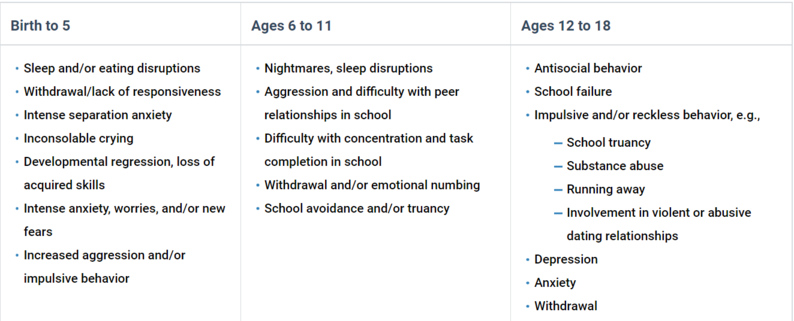October is Domestic Violence Awareness Month. According to statistics compiled by the National Coalition Against Domestic Violence, 35.2% of North Carolina women and 30.3% of North Carolina men experience intimate partner physical violence, intimate partner sexual violence and/or intimate partner stalking in their lifetimes. Additionally, 30% to 60% of perpetrators of domestic violence abuse children in the household.
Studies have estimated that between 3.3 - 10 million children witness domestic violence each year. Children can display a variety of symptoms and behaviors as seen in the chart below due to witnessing domestic violence that can affect their ability to be successful in school and other social settings. Additionally, children who witness domestic violence or are victims of abuse themselves are at serious risk for long-term physical and mental health problems.

Below are a few intervention and education resources:
- The National Center for Child Traumatic Stress (NCTSN) has a library of resources and interventions for youth, caregivers, health care professionals and more.
- Prevent Child Abuse North Carolina (PCANC) offers free online trainings with the latest information, research, and strategies to help strengthen families and increase protective factors.
- Understanding and managing intimate partner violence in the pediatric primary care setting: a review
- There are a number of evidence-based therapy options that might be a good fit for your patient, call NC-PAL for referral resources.
